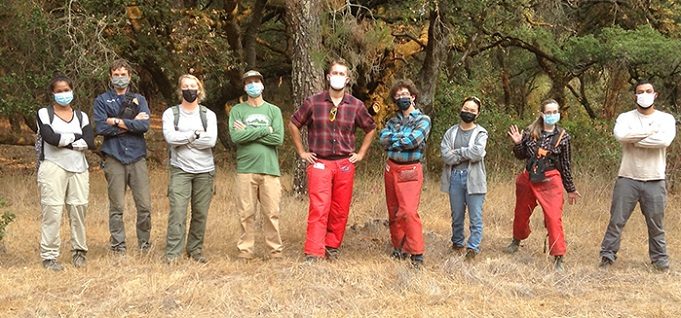Investing in wildfire resiliency in Sonoma County
By AACC 21st Century Center Staff
September 2, 2021
A California college is starting a timely new workforce training program
Several wildfires are raging in California right now. The Santa Rosa Junior College (SRJC) community is too familiar with the destruction and devastation wildfires cause. They have been in the path of several and have always stepped up to help in the wake of destruction. Now, a new program will train people to help mitigate the risk of catastrophic wildfires.
The wildfire resiliency training program will combine coursework with hands-on training in a variety of wildfire resilience practices including prescribed grazing, forest fuel reduction, fire-resilient landscaping, defensible space, and post-fire mitigation and restoration. Work-based learning arrangements, including paid internships at SRJC’s Shone Farm, a 365-acre outdoor learning laboratory, will help students hone their skills. Students also will learn from community partners conducting wildfire resilience work in high-need areas of the county.
Students in the natural resources program will receive fuel reduction training in the 120-acre forest on Shone Farm, concentrating on thinning, burn piles, fuel breaks, restoration and long-term treatment area monitoring, according to a press release. The environmental horticulture program focuses on defensible space and fire-safe practices for landscape design, construction and maintenance within the first 100 feet of residential properties. The adult education program offers professional development in wildfire resilience and home hardening practices for those seeking to advance existing careers in landscape maintenance and landscape construction. The animal science program teaches students about prescribed grazing to reduce fire risk and maintain post-burn areas and fuel breaks.
The program will start this fall, enrolling 300 students during its first year. Enrollment from underrepresented student populations will be increased by 5% per year with partnerships with three community-based organizations for recruiting and enrolling underrepresented students.
A $500,000 grant from PG&E Settlement Funds will fund the program. The grant was presented by the Sonoma County Board of Supervisors.
“Wildfire prevention, recovery, and resiliency is a top priority for Sonoma County, and we’re pleased to be able to support this critical workforce training program in partnership with SRJC,” said Sonoma County Supervisor Lynda Hopkins. “This is a forward-looking program that is timely, comprehensive, and community-based and will teach the essential skills that help protect and defend communities in Sonoma County and elsewhere for years to come.”
SRJC has received grants in the past that respond to catastrophic wildfires. In January 2020, the college was awarded more than $7 million in grant funding to construct the North Bay Regional Construction and Building Trades Employment Training Center to train construction and trades workers in order to support ongoing county-wide recovery and rebuild efforts after the October 2017 wildfires. Those fires destroyed more than 5,300 homes.



